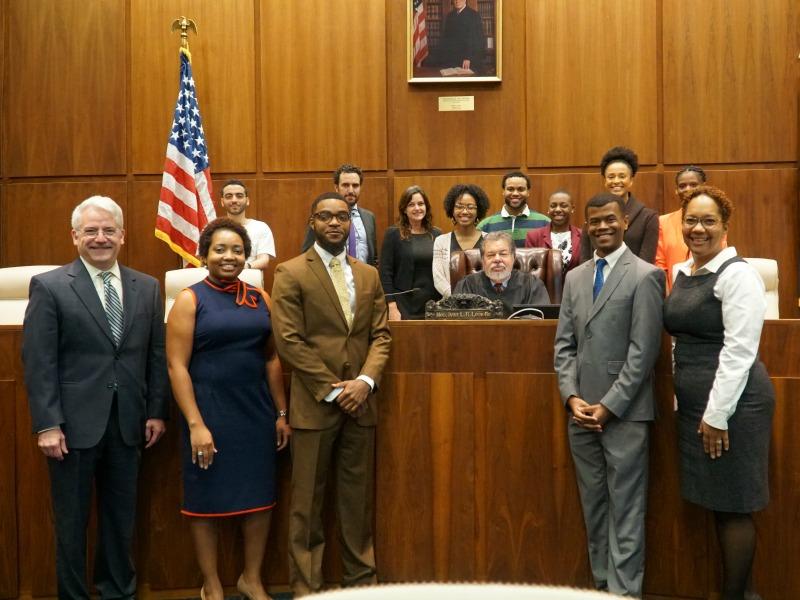Tulane Students, Faculty Reenact Pivotal Desegregation Case
In the fight to desegregate public educational institutions, the landmark Brown v. Board of Education was the seminal case. Not far behind were cases like Meredith v. Fair which pushed college campuses to admit African-American students.
Tulane Law School joined the U.S. Attorney’s Office for the Eastern District of Louisiana and the International School of New Orleans in a reenactment of the Meredith case Feb. 28 at the U.S. District Court for the Eastern District of Louisiana.
James Meredith, a black Mississippian with a strong academic and military record was twice denied entry to the University of Mississippi. In 1962, he sued Ole Miss, saying he had been denied admission on the basis of his race. The reenactment was riveting, and brought to life names in history books like NAACP activist Medgar Evers, who counseled Meredith; Constance Baker Motley, who represented him; and Thurgood Marshall, who urged the NAACP to take the case to the courts and would eventually become the first black Supreme Court justice.
The case ultimately reached the U.S. Supreme Court which ruled in Meredith’s favor. Under court order, Meredith became the first African-American student admitted to Ole Miss in 1962. Chaos followed -- with riots ending in two dead, hundreds wounded and many others arrested. President John F. Kennedy called out some 31,000 National Guardsmen and other federal forces to ensure order and protect Meredith. U.S. Marshals would spend a year following Meredith everywhere he went, protecting him from taunting and jeering crowds.
Tulane students played a number of roles – from Meredith to Marshall to Evers.
Photos of the event can be found here.
“This case impacted the historical record, in the sense that it continued building on the precedent established by Brown v. Board of Education, which centered on equal opportunity for all students,” said Randolph McKinnie Jr., a second-year law student, who played James Meredith. “Currently, it contextualizes that while we as a country have come a long way, there likewise exist opportunities in educational and other spaces to ensure that equality and equity is realized for all people."

